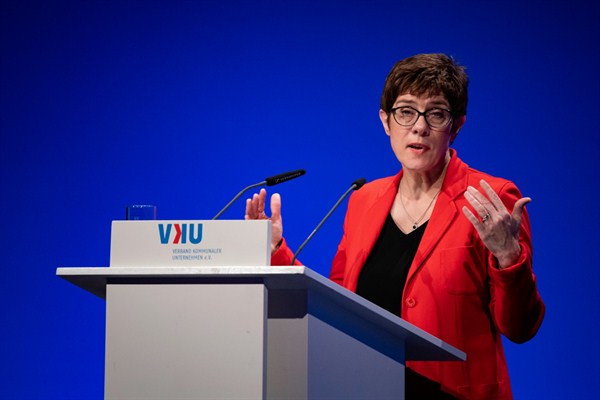If all that mattered in discussions over the future of the European Union were functional outcomes, there would be little debate or disagreement among the various sides. Almost everyone who believes in the European project would like to see the continent integrated into a mutually beneficial common market, protected from external shocks, and joined in a union of strong states whose combined strength is greater than the sum of its parts.
Of course, the debate over the future of the EU is and always has been about how best to achieve those outcomes, and the differences usually center on where to place the needle in terms of balancing concerns over protecting national sovereignty with concerns over maximizing the EU’s efficacy.
This divide, even among staunch advocates of the EU, was perfectly illustrated by the response of Annegret Kramp-Karrenbauer, the president of Germany’s CDU party and heir apparent to Chancellor Angela Merkel, to French President Emmanuel Macron’s open letter to the “Citizens of Europe,” which I wrote about last week. Kramp-Karrenbauer published her response as an op-ed in Germany’s Welt am Sonntag, the Sunday edition of Die Welt, one of the many newspapers that carried Macron’s open letter. As Constanze Stelzenmuller points out in the Financial Times, there are clearly common threads between the two open letters, what Stelzenmuller calls “a fourth narrative for a united Europe,” growing out of a shared vision of a “European way of life” and a concern over its viability in an era of geopolitical and geo-economic competition.

